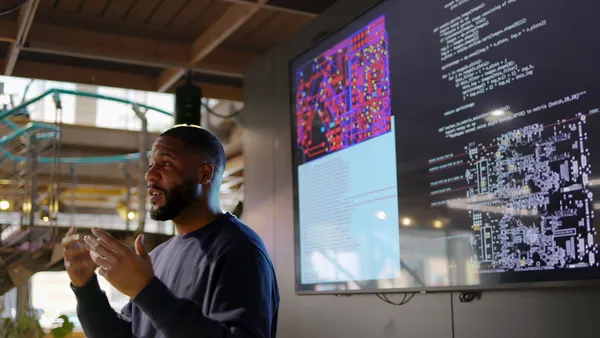Dive Brief:
- At the recent "Brain Futures" event, which gathered neurologists, psychiatrists and researchers from across the U.S., several breakout sessions covered how brain science research can benefit education — especially when guiding ed tech adoption, eSchool News reports.
- In one presentation, Duval County Public Schools (FL) official Kisya Johnson detailed how partnering with Yale psychiatrist and C8 Sciences Founder Bruce Wexler had resulted in the use of brain training software in a number of impoverished and low-performing classrooms, resulting in significant improvements to students' focus and proficiency amid a decline in chronic absentee rates.
- Proponents also recognize, however, that difficulties in scaling solutions or matching them to schools with varying challenges can lead to mixed results, but the hope is that the use of brain science can help overcome those bumps in the road.
Dive Insight:
When considering new tech for adoption, it can be easy to get caught up in the glitz of well-crafted marketing. But Scott McLeod, an associate professor of educational leadership at the University of Colorado Denver and the founder of CASTLE, suggests the most important question administrators should consider when buying tech is, "How does this empower students to do amazing things that make a difference in the world?"
As he told Education Dive in 2016, "I get a lot of puffery but rarely an answer that causes me to lean in and ask more rather than raise a skeptical eyebrow."
Key to discerning whether a piece of technology empowers students, of course, is examining the research. Future Ready Schools Director of Innovation Thomas C. Murray recently offered a number of suggestions for understanding what's worth the investment based on research, including whether a tool offers interactive learning opportunities or provokes a student to design and create.
The inclusion of research on brain science around a variety of tools can offer administrators an even deeper level of perspective on the matter, utilizing the latest knowledge on how learning occurs to evaluate the potential effectiveness. It's one more layer of the onion to peel back when considering adopting a new tool and can't be overlooked.













